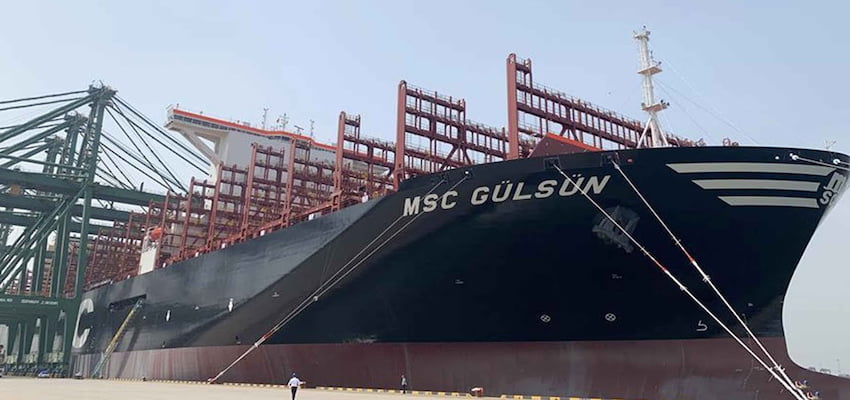MSC Mediterranean Shipping Company has announced further investment in low-carbon technology and new-build and retrofit programs to boost performance and reduce environmental impact.
The company has reported a 13% reduction in CO2 emissions per transport work in 2015-18 and is to help the container shipping industry progress towards the International Maritime Organization’s 2030 CO2 targets.
The 13% figure relates to MSC’s energy efficiency operational indicator.
A combination of green technologies and greater economies of scale are said to have helped reduce energy requirements over time.
MSC has reported increased average capacity per ship from 2500 TEU in 2003 to 6500 TEU in 2018.
“With the introduction of the Gülsün Class vessels, MSC is further improving our environmental performance as bigger ships generally emit less CO2 per container carried, helping companies which move goods on MSC’s services to lower the carbon footprint of their supply chains,” the company stated.
“The latest newbuilding additions to the fleet – led by MSC Gülsün, the largest container ship in the world – has introduced a new class of sustainable container shipping, with the lowest carbon footprint by design, at 7.49 grams of CO2 emissions to move one ton of cargo one nautical mile.”
MSC Gülsün features an interesting approach to energy efficiency with the shape of the bow designed to reduce hull resistance and enhance energy efficiency.
The ship is also equipped with a hybrid exhaust gas cleaning system and has the option of switching to low-sulphur fuel, or to be adapted for liquefied natural gas in the future.

